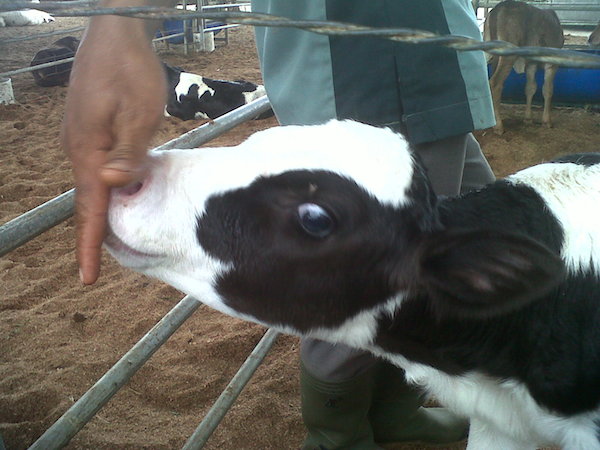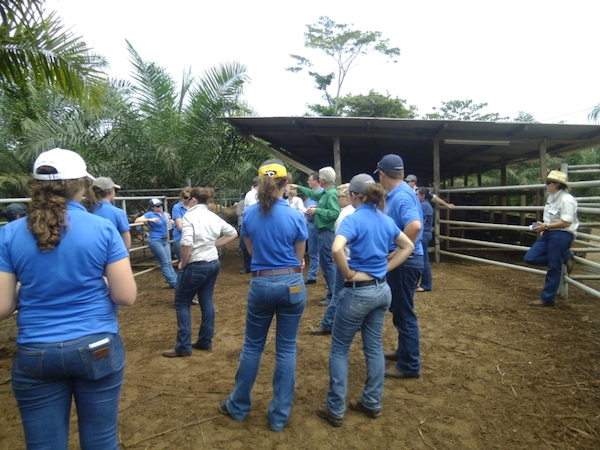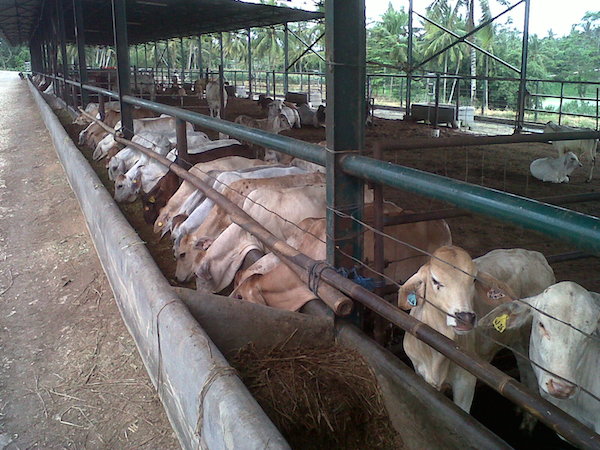Welcome to the New Year
Host: Lisa Wood/ AGP Indonesia
Written by: Lisa Wood – Traceability Manager, AGP.
As my deadline date to have my blogs in is here, I am sitting in an MLA conference, attempting to split my attention so as not to be overly late with my posts as well as keeping up with industry improvements in Indonesia. Mind you, minor fail – limited internet connection; hopefully tomorrow I have better internet connection.
Welcome . . .
What a year it has been, not only for us as Importers but for the Indonesian industry as well. It has been a time of expansion as well as tightening of belts. More Animal Welfare Officers and abattoir staff have been trained, while there has been a limited supply of cattle as we operate under Indonesian Government Import restrictions. This is not necessarily good for business, yet it has meant that we can ensure our practices are spot on for when the import numbers improve.
For us, this has meant that our feedlots have been well under capacity for most of the year. We have had to implement our own sales quotas in order to be able to supply limited head to our loyal customers. These downstream facilities have worked very hard to implement the ESCAS requirements quickly and the least we can do in return is to ensure they have a consistent supply of cattle. Admittedly, not the numbers the buyers have wanted, yet day in, day out, we have been able to supply some of what they wanted.
Our feedlot workers have had to learn more about calves and weaners as we comply with the Indonesian Government decree to breed cattle. They have known how to manage the odd one or two, yet this year it has increased to the hundreds – a very different scenario.
They have also learnt about the care of dairy cattle as we have diversified our business. This has included learning about the dairy industry, and pasteurising milk.
One of the challenges of breeding is ‘how do we feed any orphans?’ A fact of animal husbandry is that sometimes there are losses – on both sides. As Brahmans are not great producers of milk, after trying surrogate Ma’s for feeding, we thought a few dairy cows might be the solution to the high cost of buying powdered milk.
 Calves are always fed first. Any surplus milk is pasteurised for human milk sales.
Calves are always fed first. Any surplus milk is pasteurised for human milk sales.
We have had many guests come through to have a look at our feedlots and facilities, the highlight of which has been hosting Kristy O’Brian and Andrew Hyde with the production of their ‘Cattle Scars’ documentary: http://www.cattlescars.com.au/
Personally, I appreciate them trying to tell our story, and a small portion of the Indonesian story, at their own cost. I hope their reward is that a major network picks up their documentary and shares our story to a wider audience.
 Uni of Adelaide and Queensland students at Way Laga.
Uni of Adelaide and Queensland students at Way Laga.
Our research project ‘Cattle under Palms’ at Way Laga has also taken a different slant this year. The first focus found that “Yes, cattle can successfully breed on a base diet of waste palm leaves supplemented with a concentrate mix”. The vast majority of the girls had two calves and were pregnant with their third calf when we called an end to the project. This was a great result for a bit over two years project.
In February this year, we moved the girls back to the feedlot and moved some of our weaners from the feedlot to the Way Laga facility. This year we want to answer the question: ‘Can calves be successfully fattened on a base diet of waste palm leaves with a concentrate supplement?’ As we progress, the ration will be tweaked as required to ensure we are meeting the nutritional requirements of the calves.
 Gratuitous selfie with Way Laga born calves.
Gratuitous selfie with Way Laga born calves.
There has also been an ongoing change in the way Indonesian abattoirs are perceived. Previously they have simply been a ‘slaughter house’. Moving forward, they will focus on ‘processing’ as well. More on this in tomorrow’s post.
There are currently many changes underway in the Indonesian meat industry, including the interpretation of ‘what is Halal slaughter?’ as this can vary in different regions and is open to interpretation of the holy texts. Standards are being looked at and will be implemented.
The workers within ESCAS across the nation have started to demand this; they want a national standard to work to. They are tired of contradiction. My mind says “Good on them for finding the common ground”. The ‘fierce independent’ in me hopes that the Indonesian people can find this without duress from outside sources. The ‘realist’ in me knows that the answer needs to be reached ASAP.
All in all, I’m really happy to be working in Indonesia at this point in time. There is so much change and transformation happening. I asked one question at this conference, and it has opened up a huge discussion, fantastic. I’m really enjoying hearing what others have to say. With that, welcome, I’m going to focus on where I’m at right now and hope you enjoy the rest of my week’s posts.
Cheers,
Lisa

